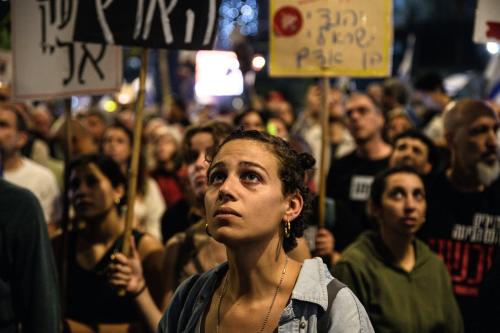 Fifty years after the 1967 War between Israel and its Arab neighbors, scholars from Brookings’s Center for Middle East Policy and other parts of the Foreign Policy program have been looking back on the war and its many affects on the region today. They’ve described how the brief conflict transformed the Middle East’s geopolitics, its military balance, its ideological trends, and several of its borders. Recognizing that the regional order is again in flux today, experts Natan Sachs, Tamara Wittes, Martin Indyk, Suzanne Maloney, Khaled Elgindy, and Daniel Byman weigh in on the legacies of the Six-Day War and what it can teach us about the volatile region today.
Fifty years after the 1967 War between Israel and its Arab neighbors, scholars from Brookings’s Center for Middle East Policy and other parts of the Foreign Policy program have been looking back on the war and its many affects on the region today. They’ve described how the brief conflict transformed the Middle East’s geopolitics, its military balance, its ideological trends, and several of its borders. Recognizing that the regional order is again in flux today, experts Natan Sachs, Tamara Wittes, Martin Indyk, Suzanne Maloney, Khaled Elgindy, and Daniel Byman weigh in on the legacies of the Six-Day War and what it can teach us about the volatile region today.
Each of their videos is available below; the entire group can be found here.
Natan Sachs on the 1967 War and Israel’s strategic outlook in the region:
Tamara Wittes on the regional order in the Middle East, then and now:
Martin Indyk on transformations in Middle Eastern geopolitics:
Khaled Elgindy on the role of Palestinians in the Arab-Israel conflict:
Suzanne Maloney on how Iran’s domestic politics and foreign policy changed post-1967:
Daniel Byman on the 1967 War and the birth of international terrorism:









Commentary
Watch: Brookings experts discuss how the outcomes of the 1967 War continue to affect the Middle East today
June 6, 2017